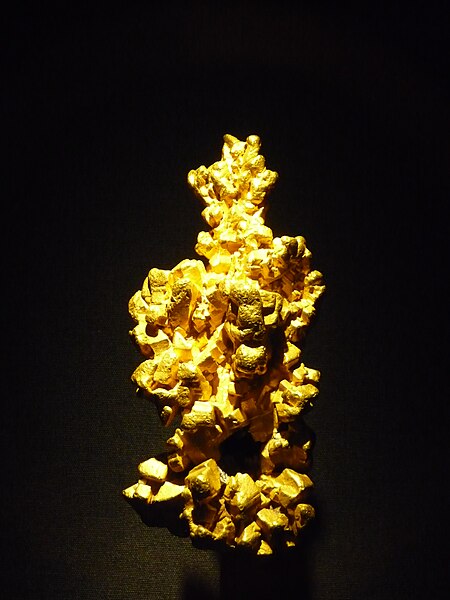Although gold is known to occur in New York State a law dating back to the birth of the United States New York New York
 |
| This is what gold looks like in the form of the Latrobe Nugget on display in the London Natural History Museum. Photo by Gump Stump |
Looking at a geological map of New York State it is easy to see that there are several environments in the state that are likely to contain both lode and placer gold. Probably the most likely place where you can find lode gold is in the Adirondacks, and the second most likely place is in the Hudson Highlands, and strangely enough right in New York City. These are areas in New York State
There is a lineation associated with the west bank of the Hudson River called Logan New York New England .
Two of the counties gathering attention are Columbia Saratoga
Another potential source for gold is found in the conglomerate of both the Schwangunks and Catskills where it was weathered out of high mountain ranges that light to the east. The rocks that are found in the Schwangunks were deposited in the Queenstown Delta, and the conglomerates that are found in the Catskills were eroded from another later mountain range that light even further east. These ancient conglomerates could be the host of fossilized placer deposits similar to the Witwatersrand Reef in South Africa
There is likely to be gold found in placer deposits across the length and width of New York that were brought down by the action of continental glaciers in at least three glaciations in the past 1 million years. Immediately to the north of New York State Ontario Wawa , Ontario New York State
Just to the north of the Pennsylvania State
 |
| The plunge pool under Niagara Falls probably contains gold if you can find a way to get it! Wikimedia Commons |
The other big terminal moraine in the state is Long Island , there is the possibility that a small amount of gold was brought down from New England by the glaciers forming deposits in the sand and gravel.
Although you may not get rich hunting for gold in New York State

